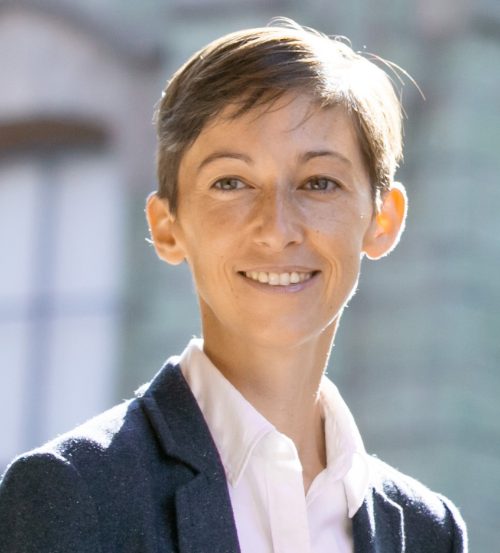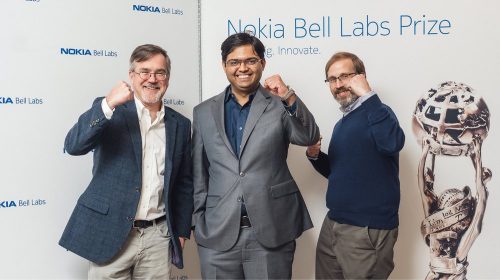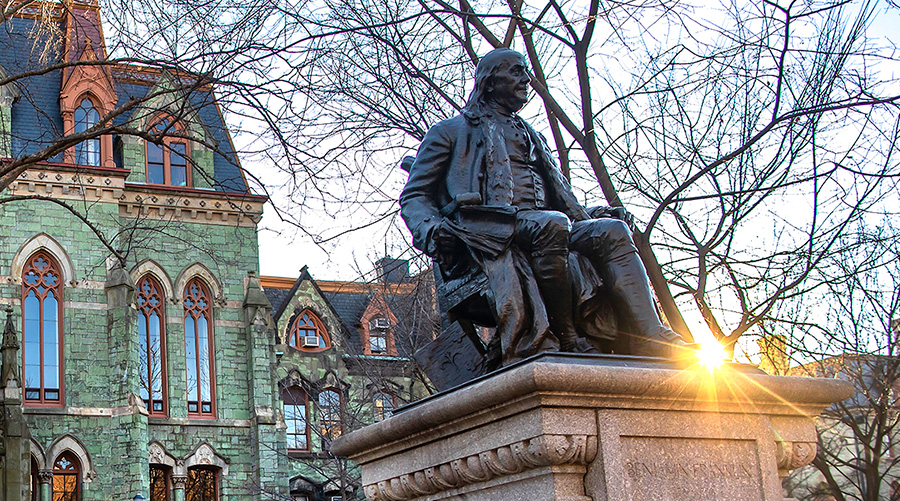What do medical innovation, big-data computing, and machine learning have in common?
Engineering Excellence
Endowed professorships at Penn Engineering help attract fantastic faculty
All three sectors are powered by engineers. At the School of Engineering and Applied Science, three outstanding faculty members are making exciting advances that will have real-world implications.
Endowed professorships, made possible by the support of many generous donors, help Penn attract such brilliant minds. And for faculty who have achieved great distinction in their fields, earning an endowed professorship is a true honor.
René Vidal

René Vidal is a Penn Engineering standout and a global pioneer in data science. In 2023, he was named the Rachleff University Professor as part of the Penn Integrates Knowledge (PIK) Program, launched in 2004 to recruit renowned scholars whose work draws from two or more academic disciplines.
Vidal holds joint appointments at Penn Engineering and the Perelman School of Medicine. His work in advancing machine learning, computer vision, and biomedical data science have exemplified Penn’s cross-disciplinary approach to problem solving. Vidal’s ingenuity will affect a wide range of emerging areas, including face and object recognition, gesture and skill recognition in robotic surgery, and the detection, classification, and tracking of blood cells in holographic images. In 2023, he was named an Association for Computing Machinery (ACM) Fellow for his outstanding advancements in computer and information technology.
Debbie and I are thrilled to support the PIK program. This program has led to the recruitment and retention of some of the most outstanding scholars in America.”Andy Rachleff, W’80, PAR’14
Dani S. Bassett

Another Penn Engineering professor whose work is breaking boundaries is Dani S. Bassett, the J. Peter Skirkanich Professor of Bioengineering. Bassett recently won the 2022-23 George H. Heilmeier Faculty Award for Excellence in Research for “groundbreaking contributions to modeling and control of brain networks in the contexts of learning, disease, and aging.” They are considered a pioneer in the field of network neuroscience, an emerging subfield that incorporates math, physics, biology, and systems engineering to understand how the tangle of neurons in the brain is wired to learn new things.
Bassett’s team at the Complex Systems Lab has been conducting cross-disciplinary research on “brain flexibility,” which refers to how often an area of the brain switches communication patterns. This research may one day provide insights into patient rehabilitation, specifically in patients who have had a stroke. Recently, Bassett’s team expanded their expertise to develop interpretable and trustworthy algorithms for health and personalized medicine. Bassett hopes to move these ideas into clinical settings soon.
Deep Jariwala

Deep Jariwala, Assistant Professor of Electrical and Systems Engineering, has been attracting attention for making advances in big-data computing. Along with Penn Engineering colleagues Eric Stach and Troy Olsson, Jariwala is tackling a challenge unique to the era of big-data computing: the problem of memory. In 2022, the group won the prestigious Bell Labs Prize for their efforts.
“As a society, we are doing computing that is more and more data-heavy,” says Jariwala. “This is due not just to the smartphone and the internet, but also because connected devices have become widespread and computer processors are ill-equipped to address these new data-intensive problems.”
Jariwala, Stach, and Olsson are working on computing architecture that’s designed with the needs of big data in mind, and they have developed a promising prototype. The group is on schedule to commercialize the new memory architecture in 5-10 years.
To support this type of game-changing, cross-disciplinary work, Vijay Kumar, the Nemirovsky Family Dean of Penn Engineering, has prioritized the creation of more endowed professorships. “Endowed positions allow us to recruit and retain high-performing faculty at Penn. This long-term stability benefits faculty research, enhances the impact they make in their respective fields, and increases the potential for exciting innovations.”
Beyond prototypes and problem solving, the unique lens of Penn Engineering faculty will help unlock solutions in nearly every field, and endowed professorships are an important key to delivering more real-world results.





